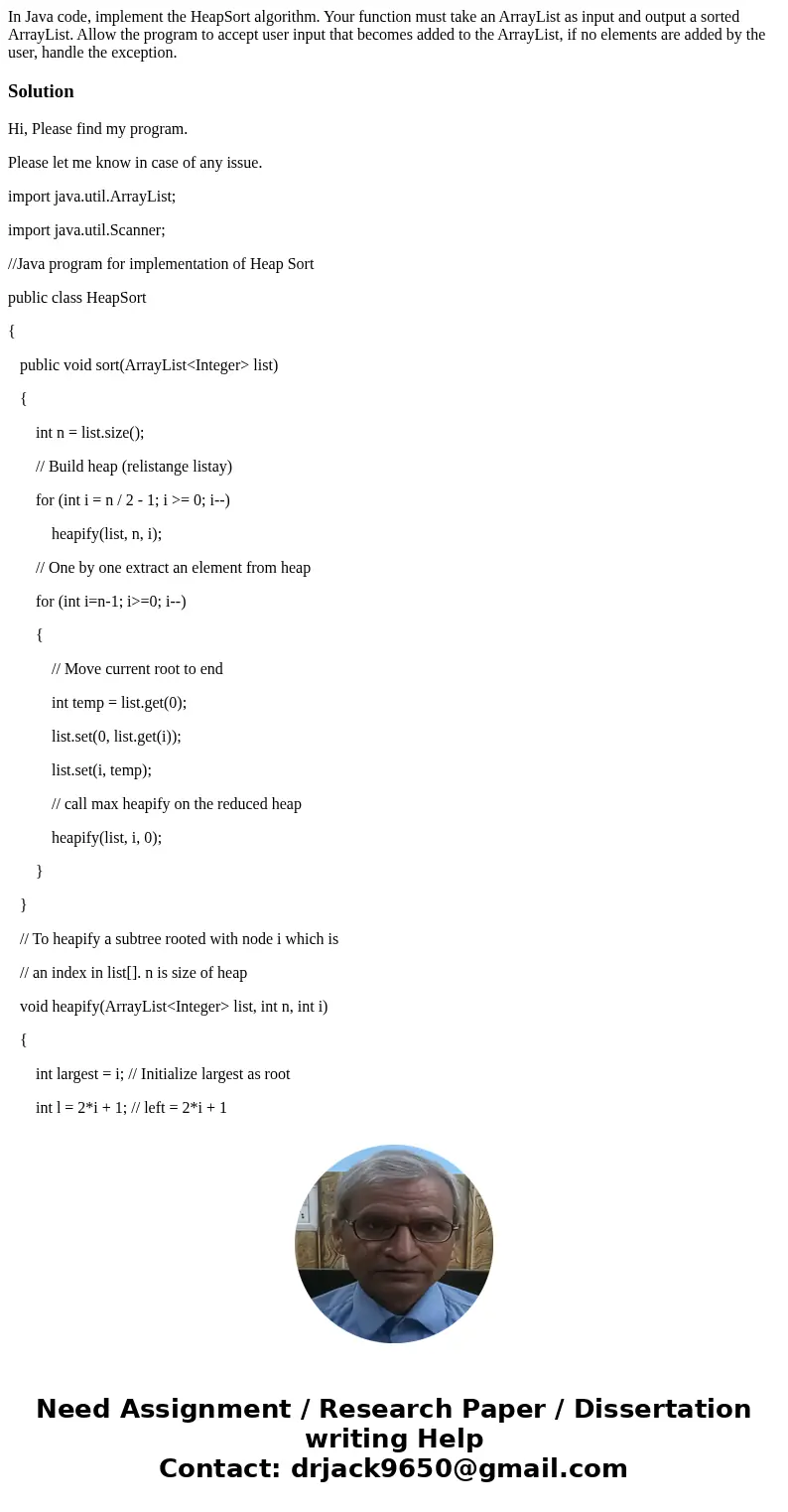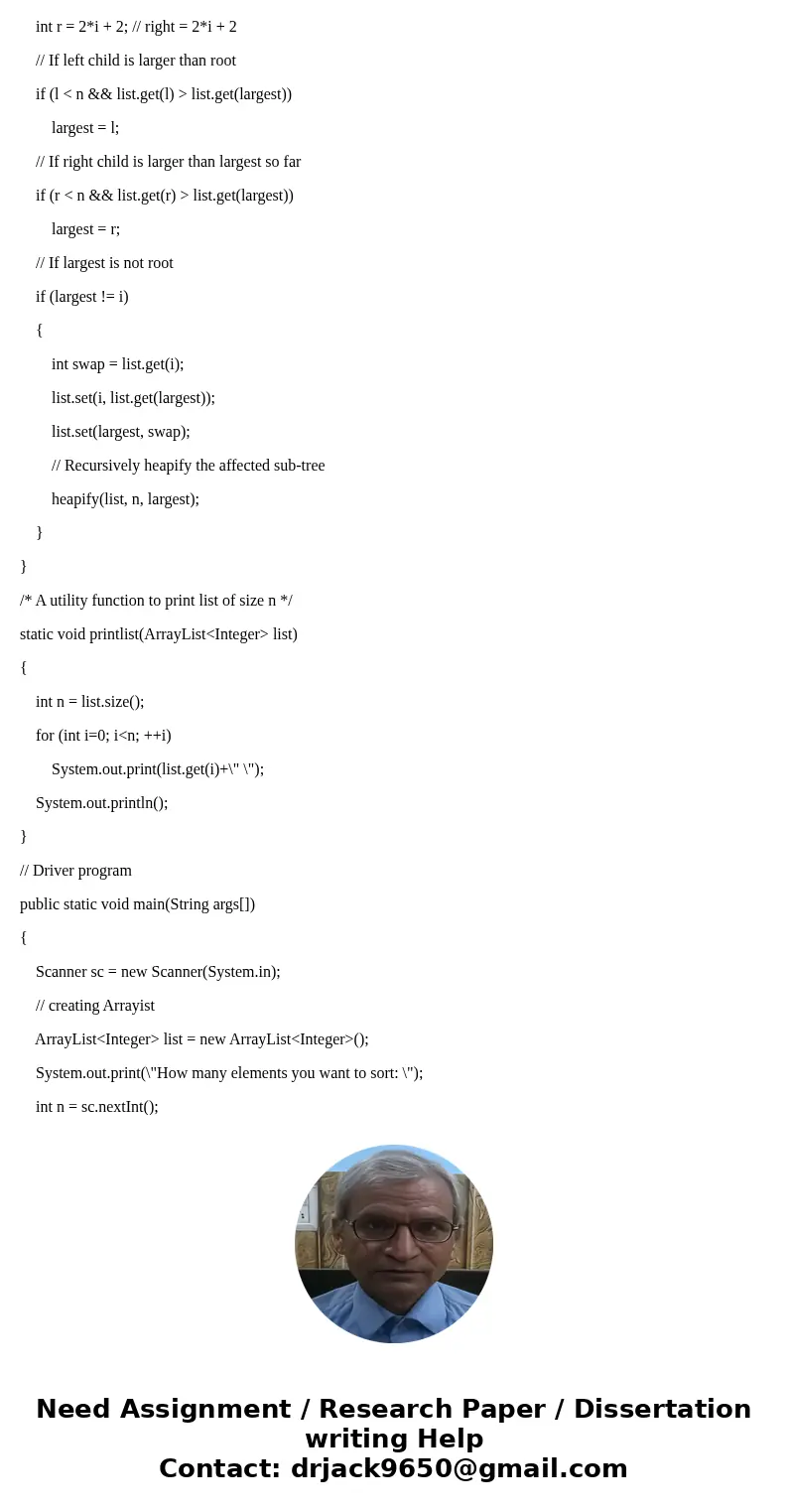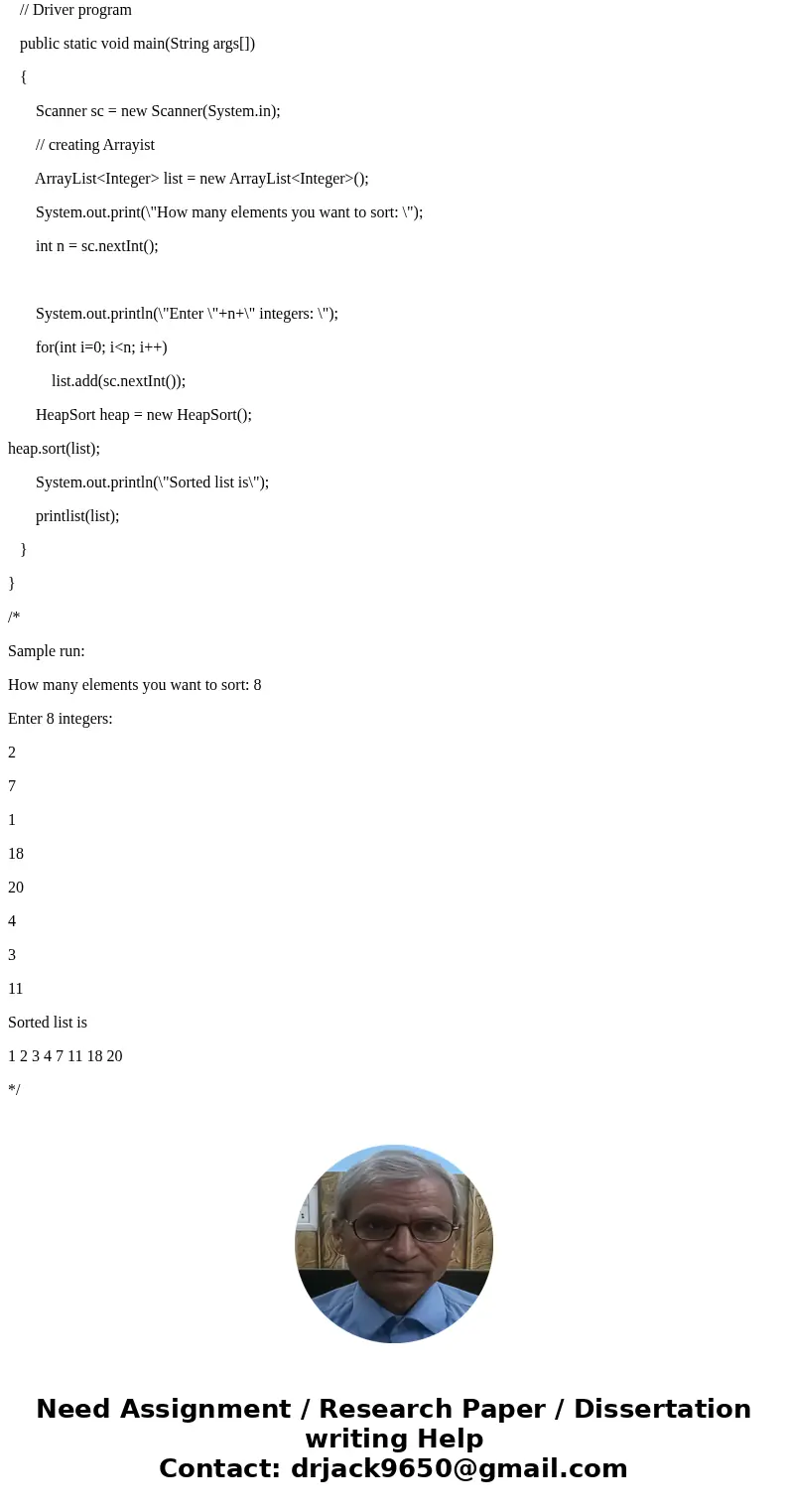In Java code implement the HeapSort algorithm Your function
In Java code, implement the HeapSort algorithm. Your function must take an ArrayList as input and output a sorted ArrayList. Allow the program to accept user input that becomes added to the ArrayList, if no elements are added by the user, handle the exception.
Solution
Hi, Please find my program.
Please let me know in case of any issue.
import java.util.ArrayList;
import java.util.Scanner;
//Java program for implementation of Heap Sort
public class HeapSort
{
public void sort(ArrayList<Integer> list)
{
int n = list.size();
// Build heap (relistange listay)
for (int i = n / 2 - 1; i >= 0; i--)
heapify(list, n, i);
// One by one extract an element from heap
for (int i=n-1; i>=0; i--)
{
// Move current root to end
int temp = list.get(0);
list.set(0, list.get(i));
list.set(i, temp);
// call max heapify on the reduced heap
heapify(list, i, 0);
}
}
// To heapify a subtree rooted with node i which is
// an index in list[]. n is size of heap
void heapify(ArrayList<Integer> list, int n, int i)
{
int largest = i; // Initialize largest as root
int l = 2*i + 1; // left = 2*i + 1
int r = 2*i + 2; // right = 2*i + 2
// If left child is larger than root
if (l < n && list.get(l) > list.get(largest))
largest = l;
// If right child is larger than largest so far
if (r < n && list.get(r) > list.get(largest))
largest = r;
// If largest is not root
if (largest != i)
{
int swap = list.get(i);
list.set(i, list.get(largest));
list.set(largest, swap);
// Recursively heapify the affected sub-tree
heapify(list, n, largest);
}
}
/* A utility function to print list of size n */
static void printlist(ArrayList<Integer> list)
{
int n = list.size();
for (int i=0; i<n; ++i)
System.out.print(list.get(i)+\" \");
System.out.println();
}
// Driver program
public static void main(String args[])
{
Scanner sc = new Scanner(System.in);
// creating Arrayist
ArrayList<Integer> list = new ArrayList<Integer>();
System.out.print(\"How many elements you want to sort: \");
int n = sc.nextInt();
System.out.println(\"Enter \"+n+\" integers: \");
for(int i=0; i<n; i++)
list.add(sc.nextInt());
HeapSort heap = new HeapSort();
heap.sort(list);
System.out.println(\"Sorted list is\");
printlist(list);
}
}
/*
Sample run:
How many elements you want to sort: 8
Enter 8 integers:
2
7
1
18
20
4
3
11
Sorted list is
1 2 3 4 7 11 18 20
*/



 Homework Sourse
Homework Sourse